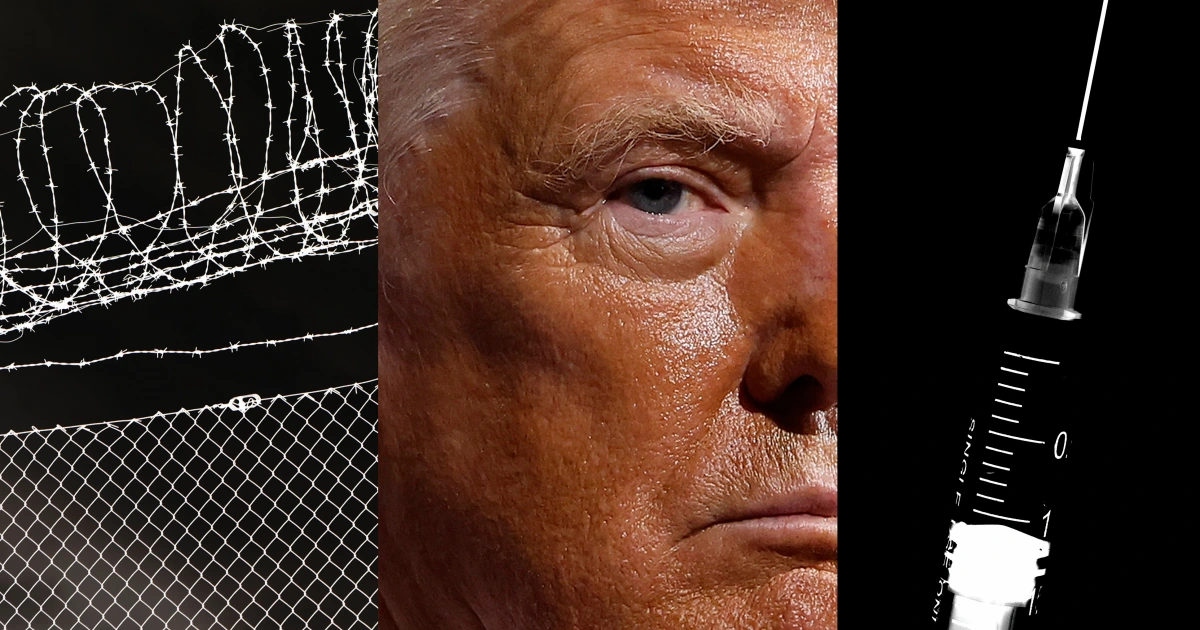Trump Vows Return of Federal Executions Amid Biden’s Pardons: A Closer Look
In a heated political landscape, former President Donald Trump has once again taken the spotlight with a bold promise: the reinstatement of federal executions. This declaration has sparked widespread debate, especially as it comes on the heels of President Joe Biden’s decision to commute the death sentences of 37 federal inmates. With the 2024 presidential election looming, the contrast between the two leaders’ policies underscores deeper divisions in America’s approach to criminal justice reform.
Trump’s Call for Federal Executions: What It Means
Trump’s vow to bring back federal executions isn’t just a return to a controversial practice—it’s a political statement. During his presidency, Trump resumed federal executions after a 17-year hiatus, carrying out 13 executions in just six months. This was the most federal executions carried out under any U.S. president since 1896. In sharp contrast, Biden has sought to scale back the use of the death penalty, reflecting his administration’s stance on criminal justice reform.
Capital punishment in the United States has long been a contentious issue. While proponents argue it serves as a deterrent for heinous crimes, opponents highlight its ethical dilemmas, disproportionate impact on marginalized communities, and potential for wrongful convictions. Trump’s renewed push for federal executions adds another layer to this divisive debate.
The Biden Administration’s Approach: A Shift in Policy
President Biden’s decision to commute the sentences of 37 federal death row inmates reflects a commitment to overhaul what many see as a deeply flawed system. Since taking office, Biden has publicly opposed the death penalty, citing concerns over its application and the risk of executing innocent individuals. By commuting these sentences, the administration has effectively placed a moratorium on federal executions.
This act of clemency has faced criticism from certain factions, who argue it undermines justice for victims and their families. However, it has also been lauded by organizations like the Innocence Project, which fights against wrongful convictions and advocates for a more equitable legal system. For Biden, these commutations signal alignment with his broader agenda of criminal justice reform and racial equity.
Political Implications of Trump’s Federal Execution Pledge
As Trump ramps up his 2024 campaign, his promise to restore federal executions is designed to appeal to his core base. For many conservatives, restoring law and order remains a top priority, and Trump’s tough-on-crime stance resonates deeply. By doubling down on federal executions, Trump positions himself as a defender of justice and a stark contrast to Biden’s perceived leniency.
But this move isn’t without its risks. Public opinion on the death penalty has evolved, with a Pew Research Center survey showing declining support for capital punishment in recent years. Younger voters and certain key demographics that Trump hopes to win over in 2024 are increasingly opposed to the death penalty. For these groups, the pledge could alienate rather than attract support.
The Broader Debate: Ethics, Justice, and Public Safety
Beyond politics, the debate surrounding federal executions touches on profound ethical and moral questions. Critics of Trump’s pledge argue that capital punishment is riddled with systemic biases. Studies have shown that race, socioeconomic status, and geography often play a role in who receives a death sentence. Furthermore, the irreversible nature of execution has led to tragic cases where innocent individuals have been put to death.
Supporters, on the other hand, contend that federal executions serve as a necessary tool to hold individuals accountable for the most heinous crimes. They argue that justice demands the ultimate punishment for actions like terrorism, mass shootings, and other atrocities. The push to bring back federal executions reflects this perspective, aiming to deter potential offenders and deliver a sense of closure to victims’ families.
Media Reactions and Public Sentiment
The media coverage of Trump’s statement and Biden’s commutations has been as polarized as the policies themselves. Outlets like Fox News have highlighted the public safety and justice dimensions of the debate, often critiquing Biden’s actions as soft on crime. In contrast, progressive platforms have emphasized the moral and systemic issues tied to the death penalty and commended Biden for taking a more humane approach.
Social media platforms have become a battleground for public sentiment, with hashtags and viral posts reflecting both outrage and support. This interplay of traditional and digital media ensures that the conversation remains at the forefront of the public consciousness, influencing voter attitudes as we approach the next election cycle.
The Road Ahead: What Could Change?
Trump’s promise to bring back federal executions, if fulfilled, could mark a significant shift in U.S. criminal justice policy. If he wins the presidency in 2024, he has made it clear that the swift reinstatement of federal executions will be among his priorities. This commitment raises questions about the logistical, legal, and ethical implications of such a move.
On the other hand, Biden’s continued opposition to the death penalty suggests that, even if Trump fails to secure re-election, the debate over federal executions and the broader role of capital punishment in the U.S. will not fade away.
Conclusion: A Defining Issue for 2024
The contrast between Trump’s vow to reinstate federal executions and Biden’s commutations encapsulates the broader ideological battle shaping America’s political future. This contentious issue has the power to sway voters, ignite public discourse, and influence policy for years to come. Both leaders are using the death penalty debate to highlight their visions for the nation’s criminal justice system—and, by extension, the kind of leadership they aim to provide.
As the 2024 election draws closer, one thing remains certain: the debate over federal executions will continue to ignite strong opinions on both sides. To stay informed on this compelling issue, visit zexnews.com for the latest updates and in-depth analysis.
“`





